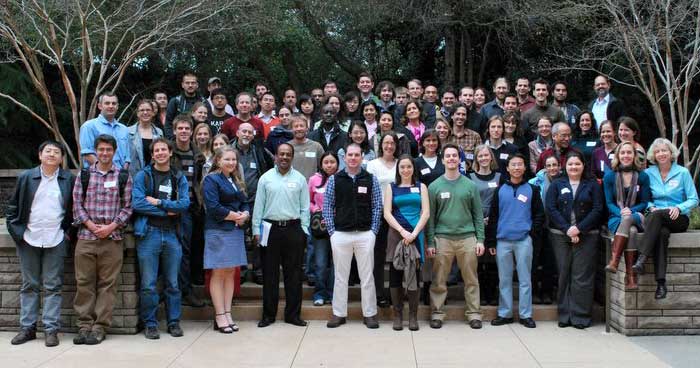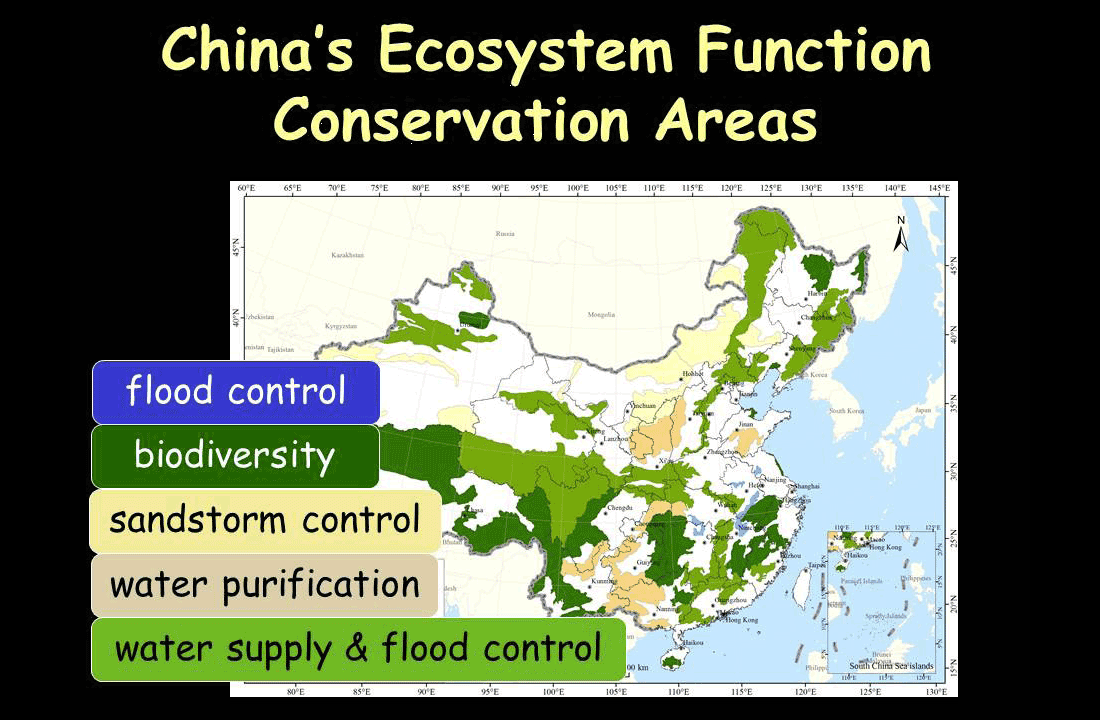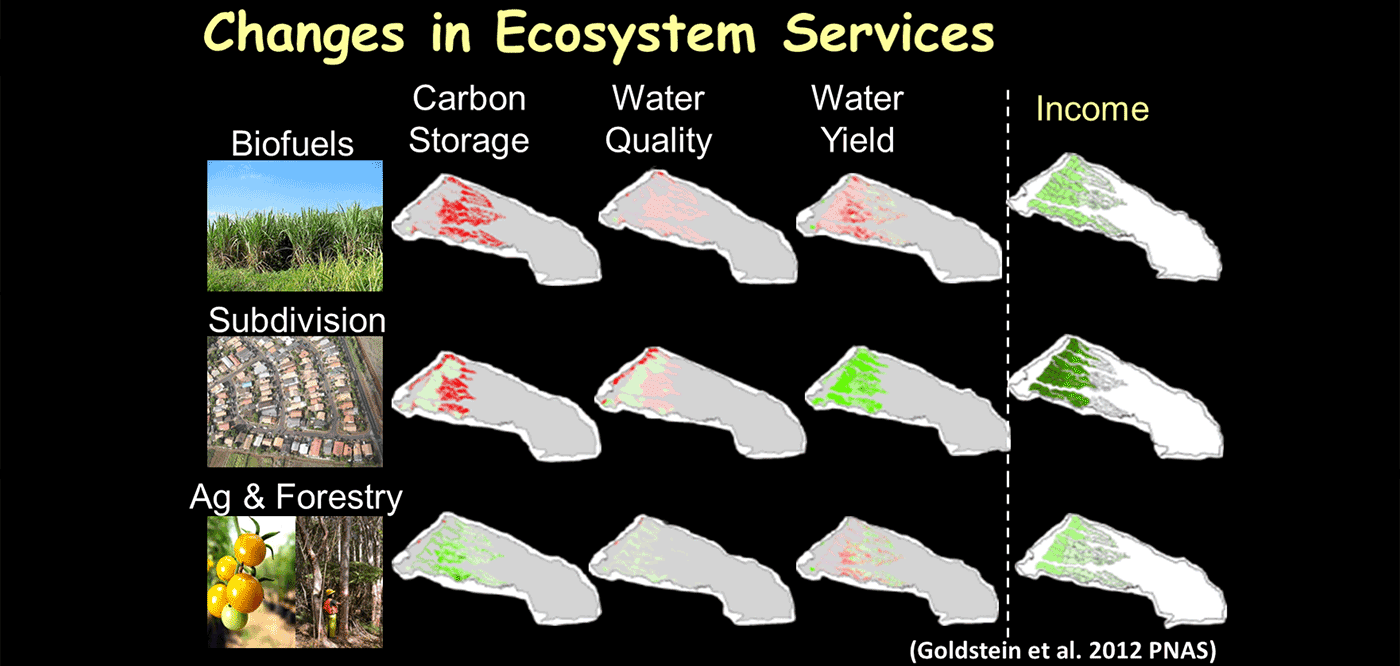
The figure shows scenarios based on three patterns of land use. Green shows the increase in value compared with the initial plan, and red shows debt. The one on the bottom is agriculture and forestry. Income (right) is the lowest, but it shows almost no debt on the left.
A challenge in China
The most substantial natural capital project has been implemented in China. In 1998, the Yangtze River flooded and caused significant damage due to large-scale deforestation in the mountains. This caused the Chinese government to realize that their development had been responsible for environmental loss due to the lack of sufficient consideration for nature. This prompted them to start working on forest preservation and regeneration.
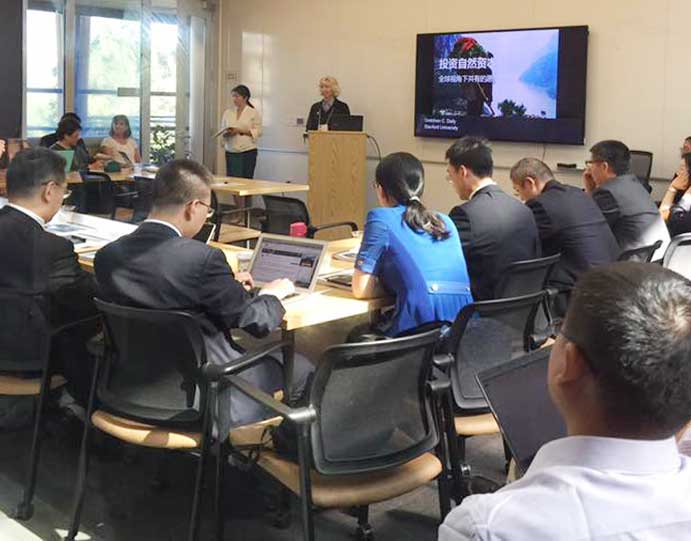
A meeting in China in 2017
Professor Daily was satisfied with the Chinese government's reaction. A country like China that had emphasized economic development had finally realized the environmental damage they had caused and the importance of investing in nature. She thinks this lesson can be applied in many other countries and regions.
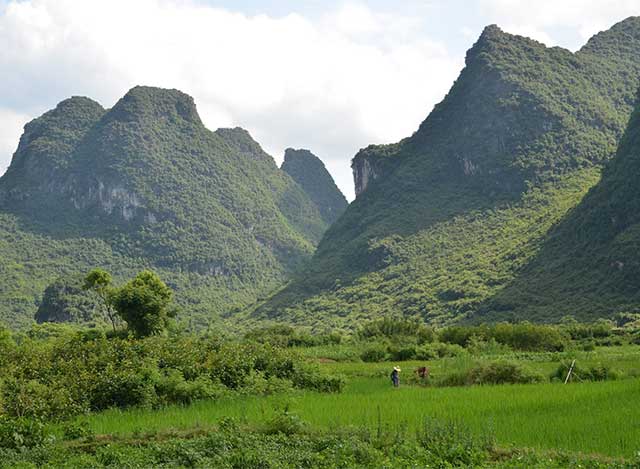
Nature in China
Of course, there are many other issues to be addressed in China. Its ecosystems have deteriorated, and it will take a long time to restore them as Professor Daily says, "If we plant just one tree, pandas will not necessarily rush to live there."
She cannot, however, ignore the crisis that the world is encountering. In the old days when there were not as many people and no modern science or technology, people and nature coexisted in the right balance. However, the might that people have over nature has grown too powerful to control by themselves. Professor Daily is deeply concerned about this.
For that reason, she moves around the world to promote nature conservation. Although she feels sad and lonely leaving her two children and husband at home, everyone is supporting her dream. Her dream is to make the world a place where all children can enjoy playing outside in nature. To pass such a world to future generations, she keeps moving forward.

Carmen (L) and Luke (R)
- Editor-in-chief
- Itaru Yasui, Former Vice-Rector, United Nations University / Professor Emeritus, The University of Tokyo
Address from the Editor-in-Chief - Editorial supervisor
- Takayuki Ohgushi, Emeritus Professor, Kyoto University
- (Affiliation is at that time of release.)

